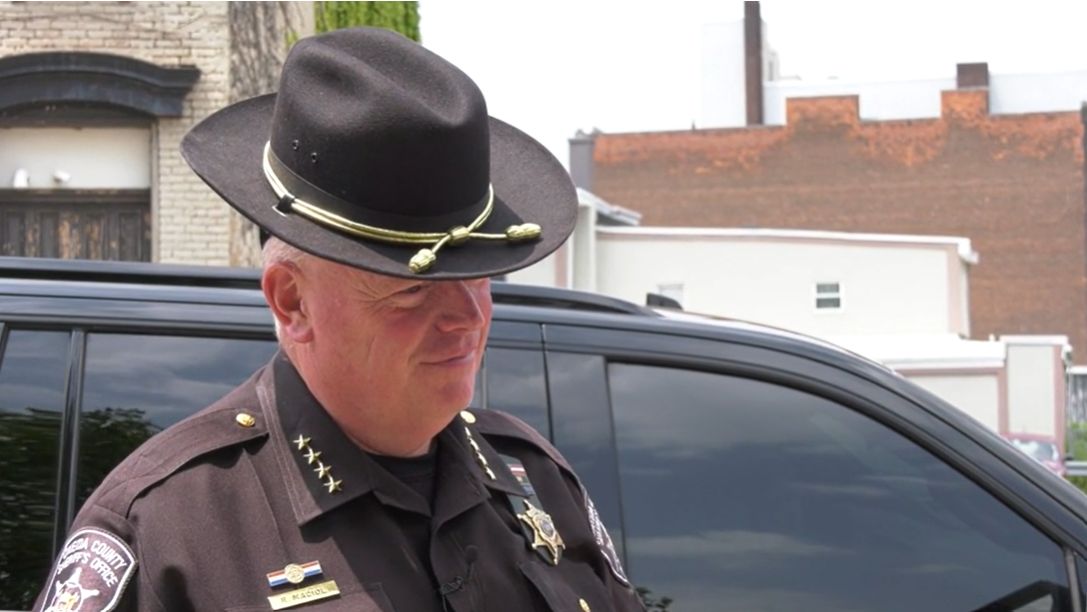Utica University recently hosted Jason Koo, the winner of the Eugene Paul Nasar Poetry Prize, on their campus to read pages from his book and teach a class on campus.
The Nassar Poetry Prize is awarded to one upstate New York poet for their published poetry collection.
“I would say the main subject of the book is knowledge, what do we know. That’s the fundamental question that the book is asking,” said Koo, a second-generation Korean American poet.
Koo is the author of four full-length collections of poetry, the most recent being, “No Rest.”
“The more I peel back layers in this book, the more I realized it was very little I knew for sure about who I was and what I was about,” said Koo.
The seven-year project that explores self-absorption against a backdrop of systemic failures won him the annual prize, named in memory of Eugene Paul Nassar, an English professor at Utica, who passed away back in 2017.
“You have this party entity reading the book and validating it and saying this book is really worthy of this recognition,” said Koo.
Elizabeth Threadgill is an associate professor of English at Utica University. This is her first year being the coordinator of the poetry prize.
“This prize was developed by a former student of Eugene Paul Nasar’s. He was so enthralled with the way that Eugene had a focus on local community authorship,” said Threadgill.
The award comes with a $3,000 cash prize.
“Makes it really satisfying more than anything to know that his legacy continues and that writers in our area have this opportunity to give our community the experience of that writing,” said Dorothy Obernesser, a former student of Eugene’s.
She says his teaching had an impact on her coming back to the university to become an English professor.
“Part of his style of teaching was to make the literature accessible. I think that’s something I do as well,” said Obernesser.
She says she understands that some of the language used in older pieces, students don’t have a real connection with.
“And one of the things that he did for us, as students, was if he felt like we didn’t know something or wouldn’t be readily accessible toys, he explained it,” said Obernesser.
Because of Eugene, people like Dorothy can adopt his habits to enlighten a new generation and poets like Jason can have their voices heard.










